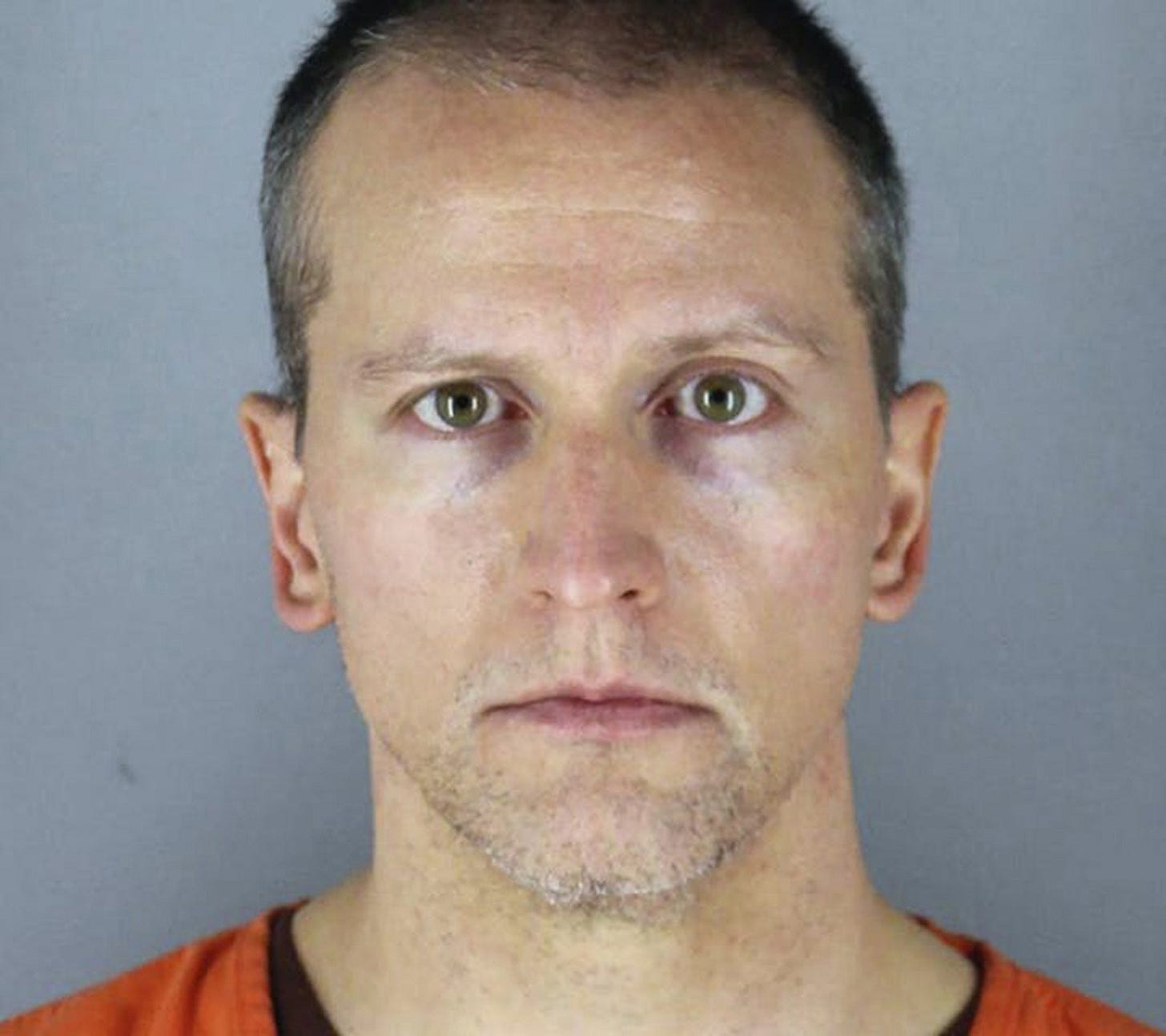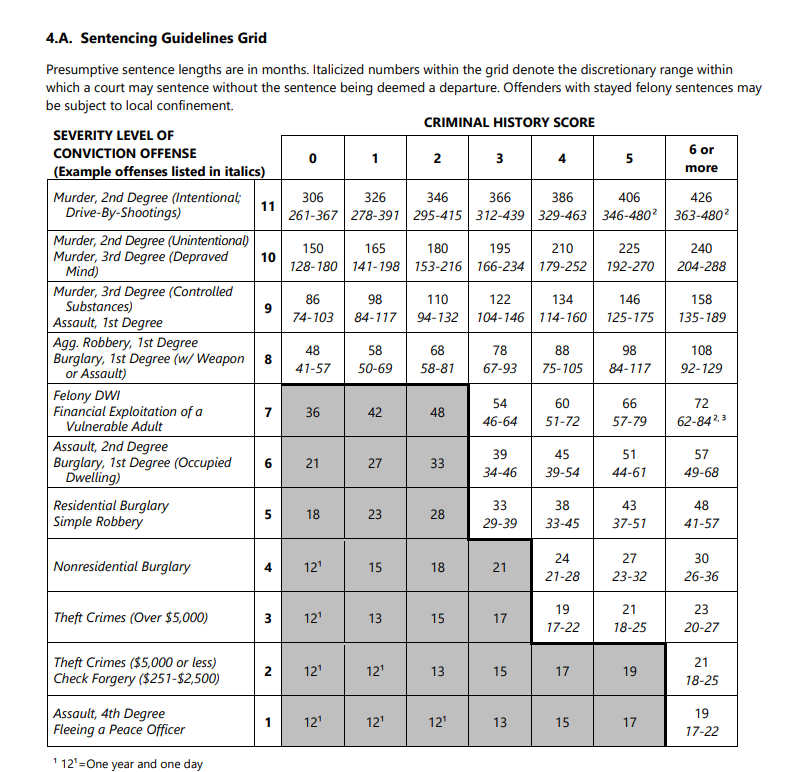Derek Chauvin Will Serve Time. But How Much?
A dive into what Judge Cahill will be considering and what the sentencing guidelines suggest
Now that the jury has found Derek Chauvin guilty on all three counts, we enter the sentencing phase. The stakes are very high: For Murder Two, Chauvin faces up to 40 years, for Murder Three up to 25 years, and for Manslaughter between 41 and 57 months. But what do these numbers really mean, will he serve them consecutively or concurrently, and what factors go into the final decision? Let’s unpack.
The first thing to understand is that the baseline sentences for each charge are not the maximums but instead comprise what the Sentencing Guidelines for Minnesota recommend. Both Murder Two for unintentional homicide committed during the course of a felony and Murder Three for depraved mind homicide carry an identical sentencing guideline of 150 months, or 12.5 years, when the murderer is a first time offender (i.e. someone with a Criminal History score of 0, like Chauvin). You can see that in the second line of this chart:
Looking a bit more closely, the judge actually has a wider range than this, as indicated in the italics, from as low as around 11 years to as high as 15 years without it being deemed a departure from the guidelines.
Importantly, because all of the charges stem from a single act against a single person, the sentences are almost certainly going to be served concurrently and not consecutively. I’ve seen no legal expert anywhere conclude that the sentences will be stacked. That means we’re looking at a baseline of around 11 to 15 years.
But what about parole? How much time will Chauvin actually wind up serving? In Minnesota, when a prisoner has served two-thirds of his sentence, he is generally eligible for parole. That could have Chauvin out in a little over seven years…if he receives a light sentence.
The state is working to prevent that. The actual sentencing won’t take place for another eight weeks, but between now and then some important things will happen, specifically a PSI (pre-sentencing investigation) and a hearing concerning special circumstances of the murder. These will be undertaken to determine whether there are any additional factors that Judge Cahill should consider in determining Chauvin’s sentence.
A person convicted of a crime generally has the right to have a jury, rather than a judge, determine any facts that might result in a sentence harsher than the sentencing guidelines (what’s called an “upward sentencing departure.”) These facts are called “Blakely” factors after a Supreme Court case in 2004. The state has cited three Blakely factors that could warrant a harsher sentence in Chauvin’s case: the fact that the murder took place in front of children (including a nine-year-old girl); that Chauvin treated Floyd with particular cruelty; and that Chauvin abused his authority as a servant of the state. On April 20, the defendant, perhaps sensing that the jury was not sympathetic to him, waived his right to have the jury decide these factors and has asked Judge Cahill to make the call.
We can assume that prosecutors will be asking for a harsher sentence for Chauvin and citing these aggravating factors. But whether they will seek the maximum 40 years is not yet clear. In sum, it appears at this time, all things considered, that Chauvin will be sentenced to at least 11-15 years—more if the judge agrees that the facts here warrant it—and will serve two-thirds of those before being eligible for parole.




Interesting analysis. I think a conviction was the right decision, but also think a 20 year prison sentence should be the max for any crime. Beyond 20 years for the most serious crimes it becomes about retribution and revenge rather than justice, which is why prison reform is so hard. Many Americans love to incarcerate their perceived enemies and "the longer the the better" gives them that 5 second dopamine bump they crave so much. That the length of the prison time will do nothing to bring back George Floyd or help his family is usually an irrelevant point. There's little room for thinking about victims when there's retribution to be had.
The question is, what do we consider the most series crime? For most it's murder, rape, or child abuse. For a judge and prosecutor the most heinous crime is demanding your 5th amendment right to a jury trial instead of the plea deal. Based on that, prosecutors and judges generally hand out of the harshest penalties not based on the underlying crime, but what they consider the real crime of challenging their authority.
For such people stacked charges and the demand for the maximum and harshest penalty with stacked charges is the rule. Derek Chauvin was a former member of the club, however, and elephants all hate elephant hunters. Expect a much lower sentence for Mr. Chauvin than if anyone from the unwashed masses failed to prove their innocence at trial.
Assuming his time served will be in solitary for his own protection, does the judge get to consider that? Would cause distress if his sentence was reduced for that or any other reason.